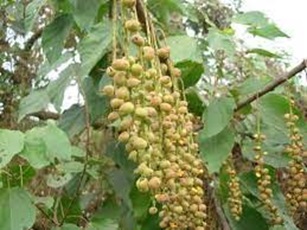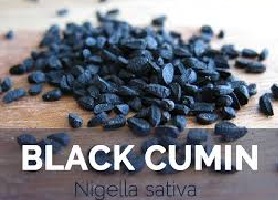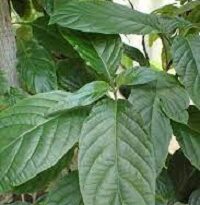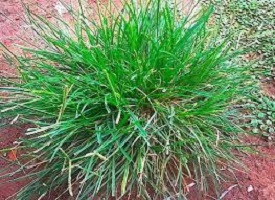Ogyama Leaves: Spiritual, Health Benefits and Side Effects
Ogyama Leaves: Spiritual, Health Benefits and Side Effects
Ogyama Leaves Side Effects, Ogyama Leaves Spiritual and Physical Health Benefits, Ogyama Leaves or Djeka leaves. How to use ogyama leaves (djeka leaves)
READ MORE: https://9jafoods.com/health-benefits-of-bagaruwa-acacia-side-effects-for-women/

Side effects and Spiritual and Physical health benefits of djeka leaves…name of djeka leaves in Hausa, Igbo and Yoruba languages.
Table of Contents
Ogyama Leaves Overview: Spiritual, Health Benefits and Side Effects
Djeka leaf or ogyama leaf is a common medicinal plant found mainly in West African countries such as Ghana, Cameroon, Senegal, Nigeria, Benin Republic etc…Djeka leaves is also seen in many South African countries.
Ogyama or Djeke Leave Health Benefits
What are Djeka Leaves?
Djeka leaves, or Ogyama leaves are naturally growing leaves that hold proven and effective antibiotic properties.
Djeka leaves (ibube leaf) other names:
- Djeka leaf in Igbo language: Nri Ewu
- Djeka leaf in Yoruba language: Ewe Upa
- Djeka leaf in Hausa language:
- The Latin or scientific name of Djeka leaf or Ogyama is Alchornea cordifolia.
Nutritional Value of Djeka Leaf.
Djeka or Ogyama leaf is made up of the following:
- 26% protein,
- 39% soluble carbohydrates
- 17% fibre
- 5% calcium oxide.
The whole plant is rich in ions like sodium, potassium and calcium.
Health Benefits of Djeka Leaves
Below are the health Benefits of Djeka leaves:
- Reduces and eases uncomfortable periods.
- Djeka contributes to the removal of the white discharge.
- Constrains the vagina’s muscular walls.
- Djeka stops the itch in the vagina
- Djeka guarantees quick healing of lower belly wounds after childbirth.
- Elevated blood iron and hemoglobin levels have been linked to dried ogyama leaves.
- Handles gastrointestinal issues, including stomach ulcers and diarrhea.
- Djeka help treat genitourinary system disorders, including infertility in women. This should not be used in place of a trip to the doctor!
- Djeka also facilitates the loss of postpartum belly fat and the easier return to pre-pregnancy shape.
- Although not clinically established, using fresh Djeka leaves as suppositories is a cure for hemorrhoids.
- Male sexual impotence may be treated with Djeka.
Editor’s Pick: https://9jafoods.com/bagaruwa-powder-acacia-tea-benefits-side-effects/
How To Make Djeka Leaves Tea: Ogyama Leaf Tea Recipe
- Firstly, wash the Djeka leaves thoroughly.
- Then, boil the leaves for 30 to 45 minutes.
- After that, allow the juice cool down and use it for personal hygiene.
- Also, put the lukewarm solution in a bucket and do a Sitz bath to relieve vaginal tears post-delivery.
- Lastly, consume the juice (cool to taste) when lukewarm. You can mix Djeka leaves with Gongolili to improve efficiency.
Side Effects of Djeka leaves
Djeka must consumed or used in moderation. Below are the adverse effects of Djeka leaves or Ogyama:
- Diarrhoea
- Depression
- Polyuria
- Abnormally elevated liver enzymes
FAQs
What is Agyama used for?
Agyama’ is the name for cordifolia in the Asante-Twi dialect of Ghana. Wounds are treated using the poultice made from the leaves.
Cordifolia is used externally to cure leprosy and as an antidote to snake venom, using its leaves and root bark (Burkill, 1997; Agyare et al., 2009).
What benefits does Alchornea Cordifolia offer?
cordifolia is used to treat diarrhea and wounds. Its traditional use also includes the treatment of urinary and gastrointestinal ailments.
Additionally, the leaves and root bark are used as an antidote to snake venom and to treat leprosy.
Benefits of Ogyama root: What benefits can arum stem provide?
Araceae family members include Arum maculatum L. (Arum), which is referred to as “yılan pancarı, yılan yastığı” in Turkey.
Numerous traditional uses for the plant exist, including treatment for rheumatism, hemorrhoids, cancer, constipation, and fungal infections.
Its expectorant, sudorific, and diaphoretic qualities are further reasons for its usage.
What is the importance of phyllanthus?
Euphorbiaceae, or Phyllanthus niruri L., is a herbaceous species that belongs to the rich class of medicinal plants that has been extensively researched all over the world.
It can serve as an immunomodulator, hepatoprotector, diuretic, antiviral, antibacterial, and anti-hyperglycemia due to its diverse pharmacological characteristics.
Fresh ogyama leaves: What are the benefits of wonder leaf?
African basil is a good source of vitamins A and C, in addition to manganese and vitamin K. Vitamin A is vital for vision, whereas vitamin C is an antioxidant that helps boost the immune system.
Manganese aides with protein digestion, and vitamin K encourages faster wound healing.
Ogyama fruit: What is the Hausa name for Alchornea Cordifolia?
Botanically called Alchornea cordifolia, it is called oje in Ebira-Etuno; ubebe or ububo in Igbo; ipain in Ijaw; ukpaoromi in Yekhee; and epa or ipan-esin in Yoruba; uwonmwe in Edo; mbom in Efik; tahi in Gwari; bambani or bombana in Hausa;
Ogyama leaves botanical name: What is the common name of Alchornea Cordifolia?
the Christmas bush
Alchornea cordifolia is a shrub or small tree distributed throughout tropical Africa, it can grow up to 8 metres tall. The plant is used in traditional African medicine. Common name is the Christmas bush.
Djeka leaves near me: Picture of ogyama leaves



